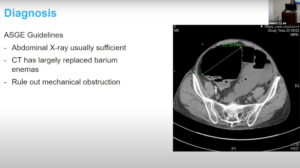NEW YORK (Reuters Health) – TNFerade biologic, a novel method of delivering tumor necrosis factor to tumor cells by gene transfer, does not prolong survival when added to standard-of-care (SOC) treatment for locally advanced pancreatic cancer, a multicenter team reports.
Given the potent activity of TNFerade in preclinical studies, “It is unclear why adding TNFerade to SOC failed to improve survival,” the investigators comment in their report in the current online issue of the Journal of Clinical Oncology.
They explain that, while TNF-alpha has substantial antitumor activity, severe systemic toxicity limits its usefulness. To get around this, a method of delivering TNF selectively to tumor cells was developed using intratumoral injection of a modified adenovirus vector carrying TNF-alpha cDNA. In the TNFerade product, the TNF gene is ligated to a protein that is induced by radiation, “thus allowing for spatial and temporal constraint of TNF-alpha production to the radiation field and markedly attenuating systemic toxicity in preclinical studies.”
Following encouraging results in early clinical trials, Dr. Joseph M. Herman, at Johns Hopkins Hospital, in Baltimore, Maryland, and colleagues conducted a randomized phase III trial of TNFerade combined with chemoradiotherapy in 304 patients with locally advanced pancreatic cancer.
The participants were assigned 2:1 to receive intratumoral injections of TNFerade followed by standard-of-care treatment with 50.4 Gy radiation in 28 fractions and concurrent fluorouracil infusion, or SOC chemoradiotherapy alone.
On a modified intention-to-treat analysis, median survival was 10.0 months in both arms (hazard ratio 0.90; p=0.26), the authors report. Median progression-free survival was also not significantly different at 6.8 months with TNFerade + SOC versus 7.0 months with SOC alone (hazard ratio 0.96; p=0.51).
Rates of treatment-related grade 2-4 adverse events were similar in the two groups at 75.9% versus 65.6% (p=0.08), respectively. However, the TNFerade group had significantly more grade 1-2 fever and chills than the SOC-only group (81.7% vs 14.3%; p<0.001).
Dr. Herman and colleagues discuss several possible reasons for the lack of benefit with TNFerade, including ineffective delivery of the agent, unsuccessful activation of the radiation-induced promoter, or a minimal effect of aggressive local therapy in the face of high rates of metastatic disease.
Going forward, they suggest, “Future studies requiring intratumoral drug injection may benefit from consideration of techniques to achieve better pancreatic tumor penetration and drug distribution given the fibrous, hypoxic nature of these tumors.”
For now, they conclude, “TNFerade administered in the fashion tested here was shown to be safe, but not effective in prolonging survival in patients with unresectable LAPC (locally advanced pancreatic cancer).”
SOURCE: Randomized Phase III Multi-Institutional Study of TNFerade Biologic With Fluorouracil and Radiotherapy for Locally Advanced Pancreatic Cancer: Final Results
J Clin Oncol 2013.




